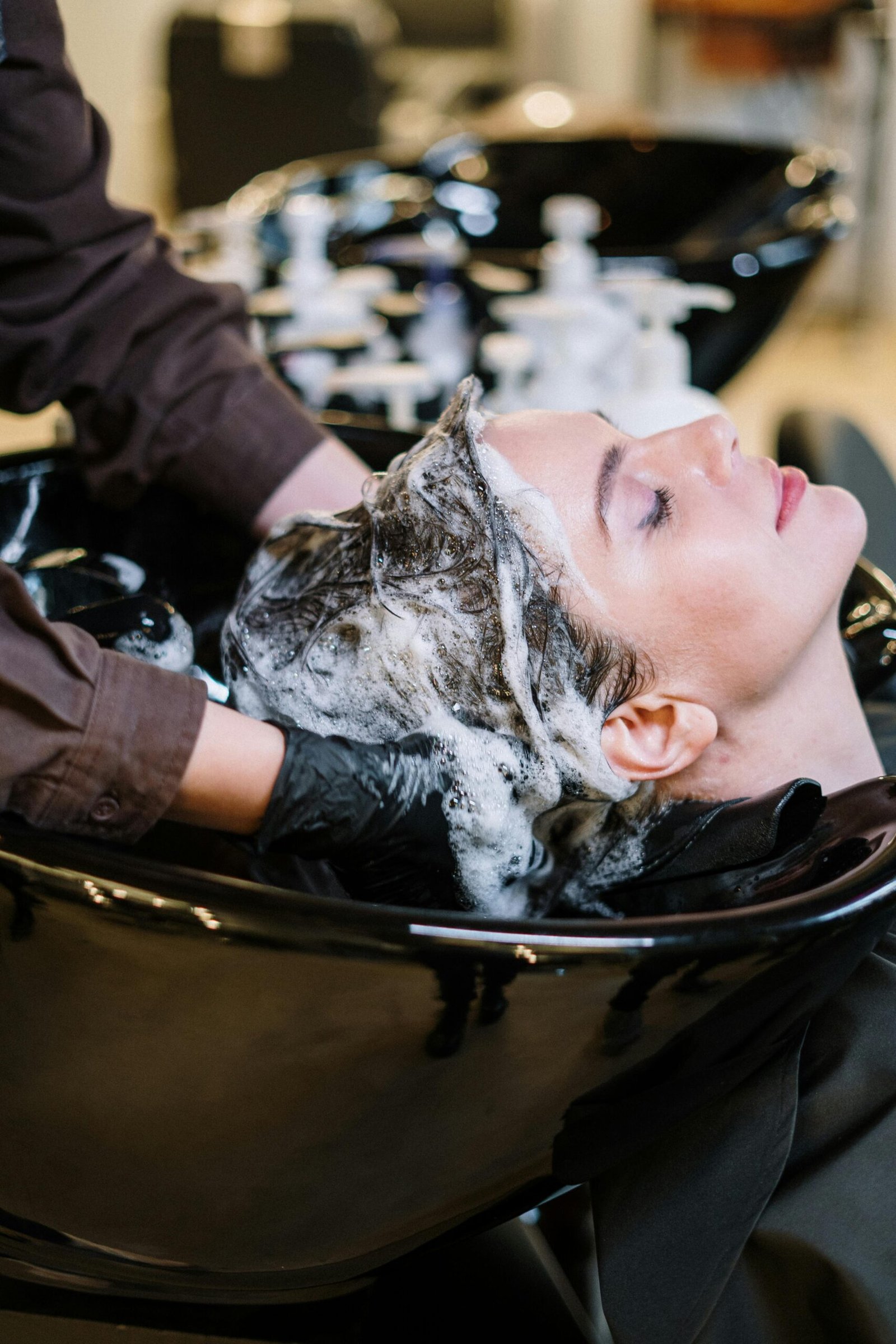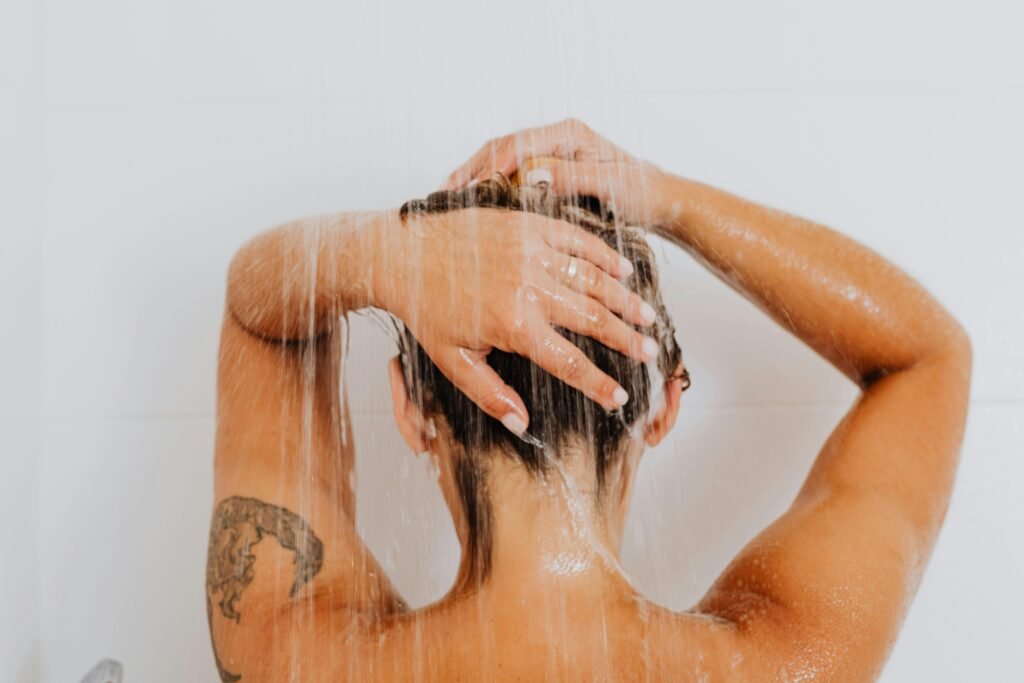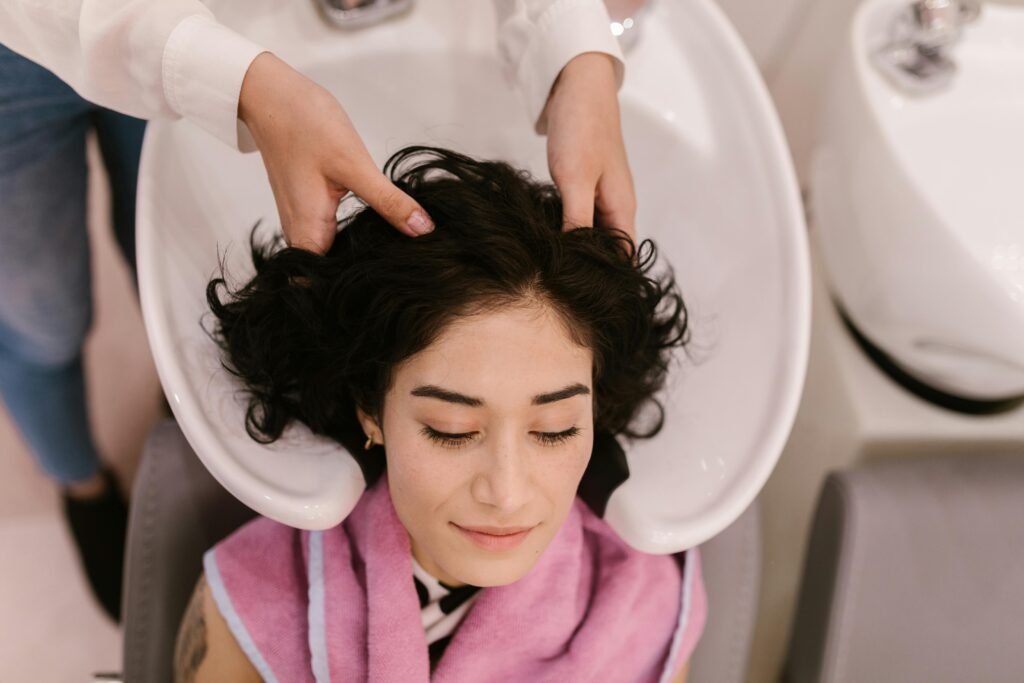
Hair fall is one of the most common complaints in both men and women, and your shampoo may be more than just a cleansing agent—it could be part of the problem. In 2025, as more consumers become ingredient-conscious and skeptical of “herbal” claims, the question arises: Is your shampoo silently damaging your scalp?
Let’s break it down from a scientific, market, and consumer perspective.
The Hidden Chemistry of Your Shampoo
Many shampoos are formulated to clean dirt, oil, and sweat from your scalp. But not all ingredients in that glossy bottle are harmless. Some can weaken hair roots, dry the scalp, and trigger allergic reactions.
Common Hair-Harming Ingredients:
- Sulfates (SLS/SLES): These foaming agents strip natural oils, leaving the scalp dry and irritated.
- Parabens: Preservatives that may disrupt hormonal balance, indirectly affecting hair health.
- Synthetic Fragrance: A mix of unidentified chemicals often linked to scalp sensitivity.
- Formaldehyde-releasing agents: Preservatives that release low levels of formaldehyde—harmful with long-term exposure.
- Silicones: May coat the hair and make it appear shiny, but they can also cause buildup and hinder hair growth.
How to Identify If Your Shampoo Is the Culprit
Here are 5 warning signs your shampoo may be contributing to hair loss:
- Excessive hair strands in the drain post-wash.
- Persistent dryness or itchiness on your scalp.
- Hair feels weak and breaks easily.
- Your scalp feels tight or inflamed after use.
- Your hair lacks volume or looks greasy despite frequent washing.

The Shampoo-Hair Fall Link: What Research Says
Recent dermatological studies have reinforced that frequent use of sulfate-heavy shampoos may cause cumulative scalp irritation, leading to follicle miniaturization—a process that gradually shrinks hair follicles, making hair thinner and easier to fall out.
A 2024 Indian Dermatological Survey showed that 61% of urban users switch shampoos every 3 months due to dissatisfaction—mostly related to hair fall and scalp discomfort.
Natural vs Chemical Shampoos: Which Is Better?
Pros of Natural Shampoos:
- Use mild surfactants like cocamidopropyl betaine (derived from coconut).
- Include ingredients like neem, bhringraj, amla, aloe vera, known to support scalp health.
- Fewer synthetic preservatives and zero artificial fragrance.
Cons:
- May take longer to show visible results.
- Less lathering (which people mistakenly associate with effectiveness).
- Costlier than mainstream chemical shampoos.
Budget & Ingredient-Based Shampoo Comparison (HTML Table)
You can paste this HTML directly into your WordPress blog post:
| Shampoo | Type | Main Ingredients | Hair Fall Claim | Price (₹) | Rating |
|---|---|---|---|---|---|
| Clinic Plus Strong & Long | Chemical | SLES, Dimethicone | Controls breakage, not hair loss | ₹120 | 3.8/5 |
| WOW Apple Cider Vinegar | Natural | Apple Cider Vinegar, Argan Oil, Saw Palmetto | Controls hair fall, balances scalp pH | ₹399 | 4.2/5 |
| Biotique Bio Kelp Protein Shampoo | Ayurvedic | Kelp, Bhringraj, Neem | Promotes new hair growth | ₹170 | 4.1/5 |
| L’Oréal Paris Fall Resist 3x | Chemical | Arginine, Salicylic Acid | Strengthens roots, reduces hair fall | ₹225 | 4.0/5 |
| Khadi Natural Herbal | Herbal | Amla, Reetha, Bhringraj | Reduces hair fall and dandruff | ₹150 | 4.3/5 |
Who Is Most at Risk?
- People who shampoo daily: Excessive cleaning strips away natural oils.
- Those with chemically treated hair: Color or straightening makes hair more vulnerable.
- Men and women with oily scalps: More prone to over-washing.
- People living in hard water zones: Minerals + sulfates = rough hair + breakage.
Tips to Prevent Hair Fall from Shampooing
- Check your shampoo’s ingredient list. Avoid SLS/SLES and parabens.
- Switch to sulfate-free or Ayurvedic shampoos at least 3x a week.
- Use lukewarm or cold water while rinsing—hot water damages cuticles.
- Limit washes to 2–3 times per week if possible.
- Pair shampooing with oiling and deep conditioning.
Dermatologist’s Take: What You Should Do
According to Dr. Radhika Mehta, a trichologist at Manipal Hospital:
“Most patients we see with chronic hair fall are using shampoos that are too harsh or unsuitable for their scalp type. We often recommend pH-balanced, sulfate-free formulas combined with biotin-based diets for recovery.”
2025 Market Insight: What Shampoos Are Winning Trust
A quick review of Amazon & Flipkart reviews in Q2 2025 suggests:
- Ayurvedic and herbal brands are outperforming mainstream commercial shampoos in terms of repeat buyers.
- Indian consumers are seeking ingredient transparency, even in tier-2 and tier-3 cities.
- Price sensitivity is high: products under ₹400 with decent reviews are preferred.
Verdict: Is Your Shampoo Causing Hair Fall?

Yes—if it contains sulfates, parabens, and strong fragrances.
Yes—if you’re using it daily without proper conditioning.
Yes—if your scalp feels irritated or flaky post-use.
You don’t need to panic, but a simple switch to a gentler, pH-balanced shampoo can have a significant impact in just 6–8 weeks.
Conclusion
Your shampoo may be silently contributing to hair fall—especially if it contains harmful chemicals or doesn’t suit your scalp type. Opting for mild, natural shampoos, reducing wash frequency, and using conditioner appropriately can lead to healthier hair in just a few months.
The takeaway? Healthy hair starts with the scalp—and your shampoo is either a friend or foe.
More Stories
Justicia Wynaadensis for Hair Growth: Does It Really Work?
Amazon Great Freedom Festival 2025: What to Grab and What to Skip
Justicia Wynaadensis (Maddu Toppu / Aati Toppu): The Sacred Herb of the Western Ghats